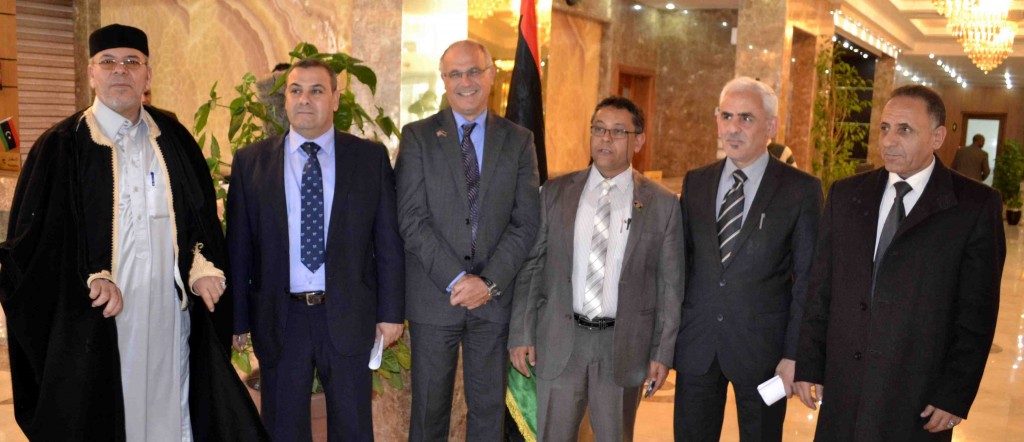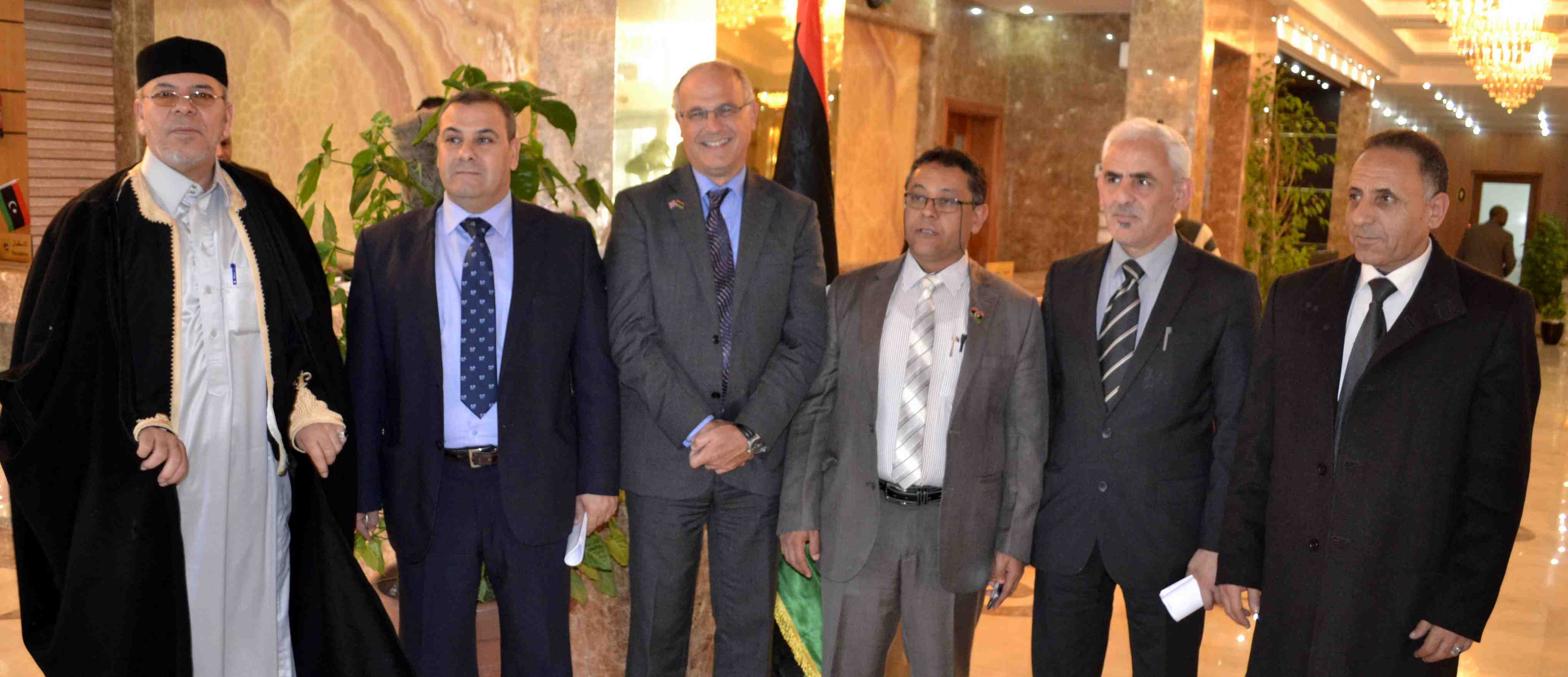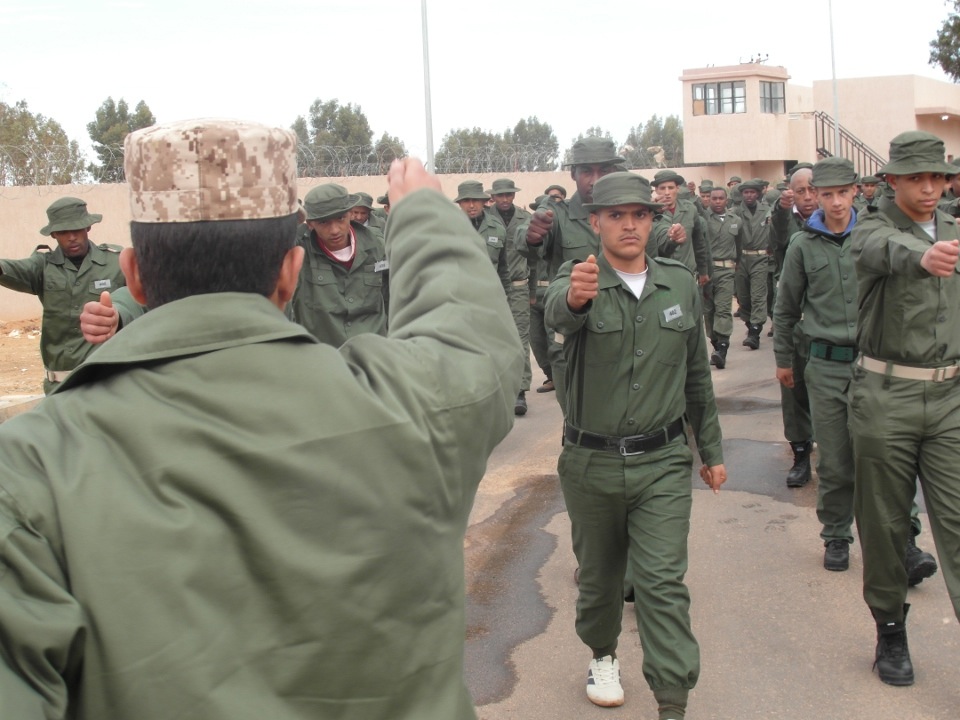By Libya Herald staff.

Tripoli, 7 December 2013:
The decision by leaders in Misrata that its members of Congress and government ministers should . . .[restrict]return to their duties in the capital, announced three days ago, has been welcomed by the British ambassador during a visit to the city.
Michael Aron said after he visited Misrata today for talks with civic and community leaders: “They told me that they have broadly agreed to return. I said that I thought it was very important that Misrata contributed to the national political process, because of the importance of its role in the country”.
Aron told the Libya Herald that the Misratans had said that they wanted the fact-finding commission to establish exactly what had happened at Gharghour.
While the ambassador talked with civic leaders, part of his embassy team visited the Misrata Free Zone and the LISCO iron and steel works.
As a result of the withdrawal ministers like Economy Minister Mustafa Abofanas have been doing their work from Misrata.
Yesterday, Aron had been to a Tawerghan refugee camp in Tripoli and he brought up in his meetings today the issue of the Tawerghans’ return to the town they abandoned at the end of the fighting. “The Misratans said that they thought that this was for the government to deal with, as part of the process of national reconciliation”.
Aron’s visit to the Tawerghan camp off the capital’s Airport Road was, he said, shocking. The camp had been badly flooded in recent days. When the embassy party heard that nappies, baby formula and soft babies bottles were desperately needed, they went and bought supplies.
“We sat and talked with the head of the [Tawergha] local council,” said Aron, “ and he said their situation was terrible. Earlier in the year, they had been planning to march back to Tawergha, but they had been persuaded not to do so in the hope that their situation would be improved. In fact, we were told, it has got worse”.
Aron said that the Tawerghan leaders were ready to make an apology for what had happened during the war and if any of them stood accused of crimes, they were ready to submit the individuals to the justice system.
“But they said that they wanted to go home. Their conditions were appalling. They did not want to go into better housing, because they feared then that they would be forgotten.” [/restrict]










